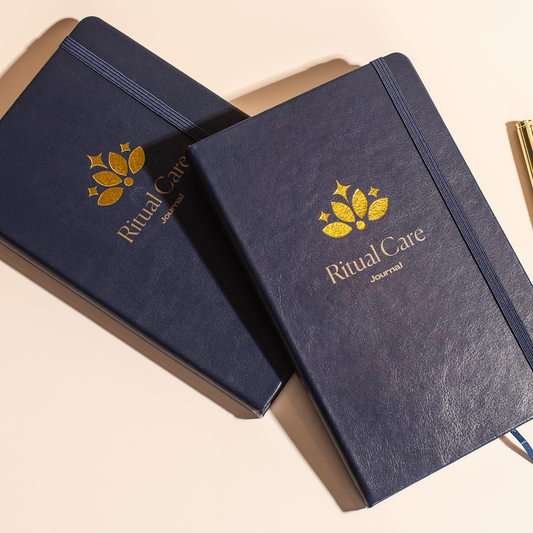To lay a solid foundation for good health, it is important for your body to maintain a balance between two basic types of chemical compounds—acids and alkalis. The measurement of these compounds in your body’s fluids—such as blood, saliva, and urine—is known as the pH. Measuring your pH can help you gauge when your body is out of balance. Your urine pH is a simple way to estimate your metabolic pH; you can buy a simple urine pH test to do at home. The scale ranges from 1 to 14. A measurement of 7 is neutral. Anything lower than 7 is considered acidic, and anything higher than 7 is considered alkaline.
For your body to operate optimally—circulating oxygen and removing cellular waste—your cells need a slightly alkaline environment. When this balance is off-kilter and becomes too acidic, many cellular processes become impaired, setting the stage for developing fatigue and disease. The good news is, you can rebalance your pH through simple diet and lifestyle choices.
This chart adapted from The Ultimate pH Solution gives specific examples of some alkaline-forming foods:
The impact of the acid-alkaline balance in your body has a tremendous impact on your overall health and quality of life. Try testing your pH and see if you notice a difference when you experiment with the approaches described above.
Learn Deepak Chopra's simple, often surprising ways to feel less stressed and more energetic each day with our self-paced online course, Secrets to Vibrant Health. Learn More.
For your body to operate optimally—circulating oxygen and removing cellular waste—your cells need a slightly alkaline environment. When this balance is off-kilter and becomes too acidic, many cellular processes become impaired, setting the stage for developing fatigue and disease. The good news is, you can rebalance your pH through simple diet and lifestyle choices.
The Importance of a Balanced pH
The correlation between pH balance and disease has been recognized by physicians since the early 20th century, according to The Acid Alkaline Food Guide by Dr. Susan E. Brown. Low-grade pH imbalances can be a result of the standard American diet, which is high in refined carbohydrates and meat. You can help balance your pH through eating alkaline foods, breathing deeply, and drinking alkaline water.Eat Alkaline Foods
Foods can produce an acid or alkaline product in your blood after they are digested. Eating fruits and vegetables bathes your insides in alkaline-forming, mineral-rich compounds that keep your body slightly alkaline. Compounds naturally occurring in fruits and vegetables (like potassium, magnesium, and calcium) act as natural mineral buffers in acidic environments. Mineral stores of these compounds are actually housed in the musculoskeletal system and play an important role in supporting the body’s ability to maintain homeostasis. However, when imbalances remain chronic, these mineral stores are used by the body to reduce acid build-up that can lead to a state of disease. Fortunately, there is plenty you can do to turn an unhealthy acidic environment to a health-promoting alkaline one. The most important step you can take is making smarter food choices.This chart adapted from The Ultimate pH Solution gives specific examples of some alkaline-forming foods:
| spinach | lettuce |
| broccoli | celery |
| artichoke | peas |
| Brussel sprouts | sweet potato |
| cabbage | eggplant |
| cauliflower | green beans |
| carrot | beets |
| cucumber | blueberries |
| lemon | pear |
| lime | grapes |
| seaweed | kiwi |
| asparagus | melon |
| kale | tangerine |
| radish | figs |
| collard greens | dates |
| onion | mango |
| avocado | papaya |
| green tea |
Additional Tips for Choosing Alkalizing Foods
- When eating grains, choose organic oats, wild rice, and quinoa.
- Drink fresh green vegetable juice on a regular basis.
- For every 10 foods you eat, make six of them vegetables, with a special emphasis on leafy greens, according to Dr. Russell Jaffe.
Breathe Deeply
Another way to support your body’s pH-balancing process is through deep breathing. Breathing exercises like pranayama can have immediate effects by altering the pH of the blood, or changing blood pressure. Studies show that this form of breathing can positively affect immune function, hypertension, asthma, autonomic nervous system imbalances, and psychological and stress-related disorders.Drink Alkaline Water
Drinking alkaline water may provide some health benefits as well. A simple way to increase alkalinity in your water is by adding few pH drops (over-the-counter drops that help alkalize your system) or a splash of lemon or lime juice. A good source of alkaline water is spring water, which becomes alkaline by acquiring minerals as it passes over rocks, according to Lawrence Wilson, MD, who specializes in nutritional balancing at the Center for Development in Prescott, Arizona. One study showed the potential benefits of alkaline water as an adjunct for treating acid reflux; however, there is no hard evidence proving alkaline water’s effectiveness with other diseases.The impact of the acid-alkaline balance in your body has a tremendous impact on your overall health and quality of life. Try testing your pH and see if you notice a difference when you experiment with the approaches described above.
Learn Deepak Chopra's simple, often surprising ways to feel less stressed and more energetic each day with our self-paced online course, Secrets to Vibrant Health. Learn More.






















